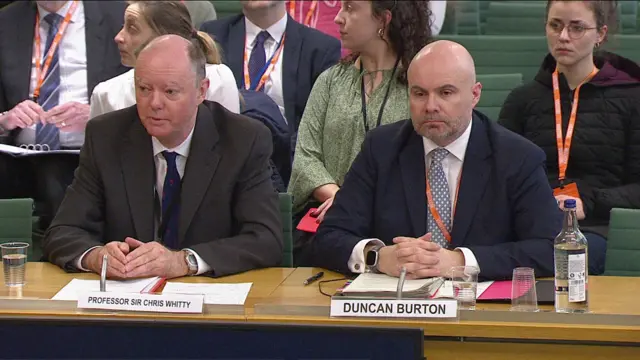'This is not a precise science'published at 09:57 GMT 28 January
Next, Lib Dem MP Sarah Olney asks about the definition of "terminal illness" and whether it would improve the bill if there was a specified list of illnesses in it which doctors could look to.
Whitty says this would be "extremely difficult". Giving the example of people diagnosed with cancer, he says not everyone with the disease will die. He also says there are people who may not have a single disease but multiple diseases - and it's that "constellation" that will cause their death in the future.
England's chief medical officer stresses that these factors make it difficult to say which diseases will cause death and which will not.
"This is not a precise science," he adds.
- For context: MPs backed the assisted dying bill in November, but it still faces many more months of debate and potential amendments before it can move to the House of Lords and then go on to become law.

